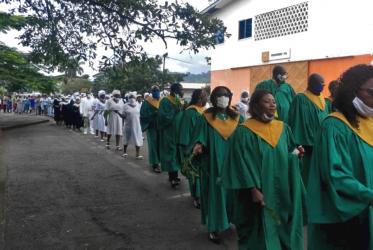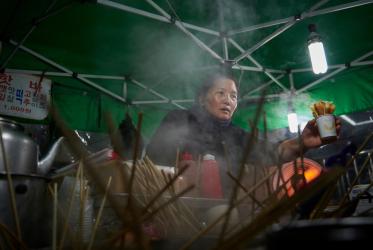Displaying 121 - 140 of 516
“Olive trees are holy signs of peace, older than anyone”
22 October 2020
WCC commemorates life of Rev. Tsutomu Shoji
02 September 2020
WCC grieves passing of Rev. Dr Micheline Kamba Kasongo
06 August 2020










